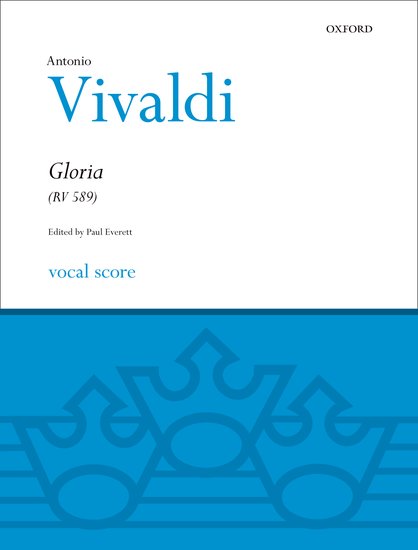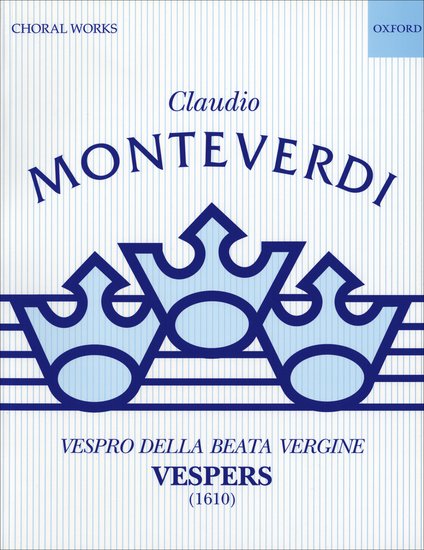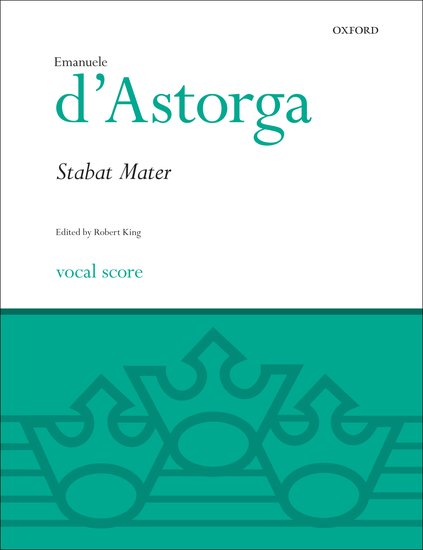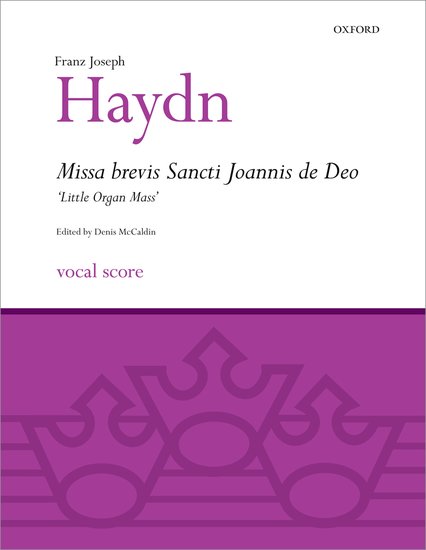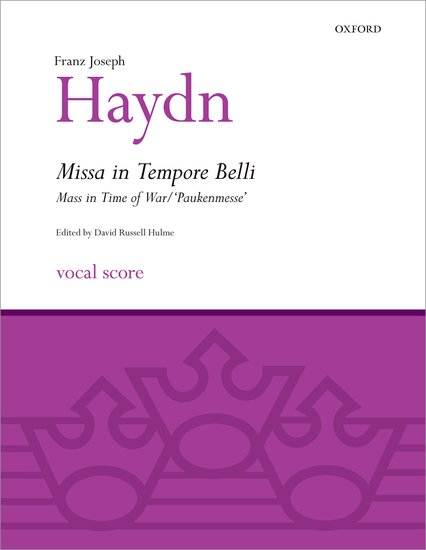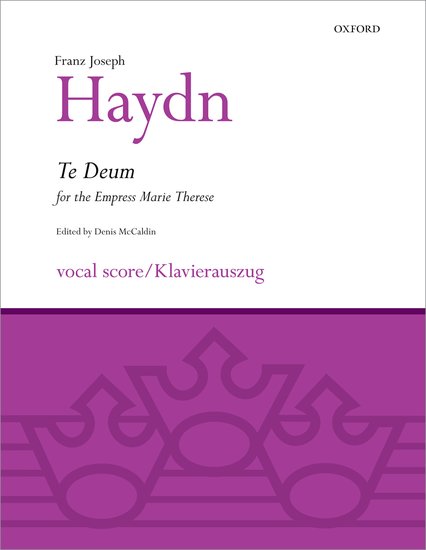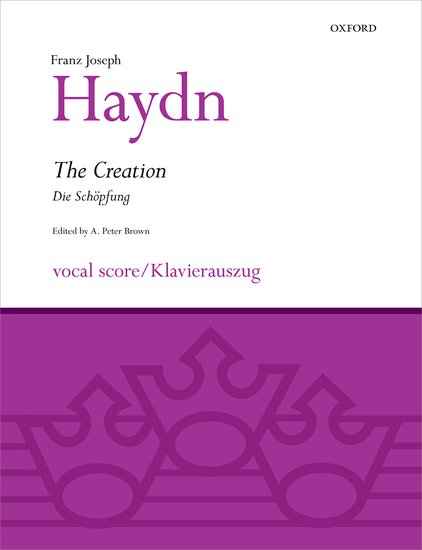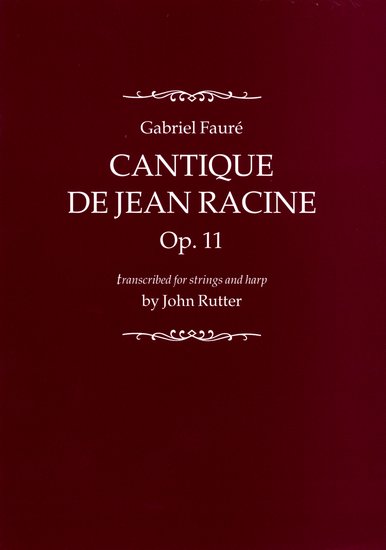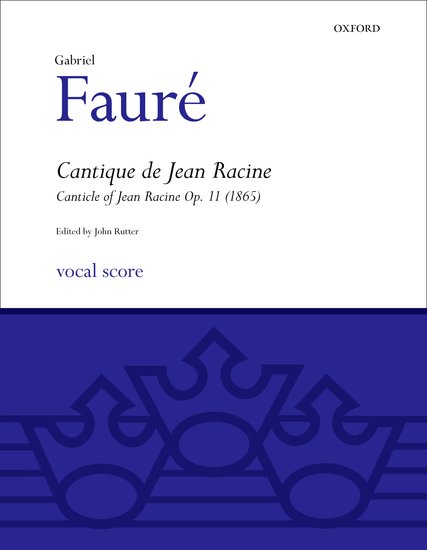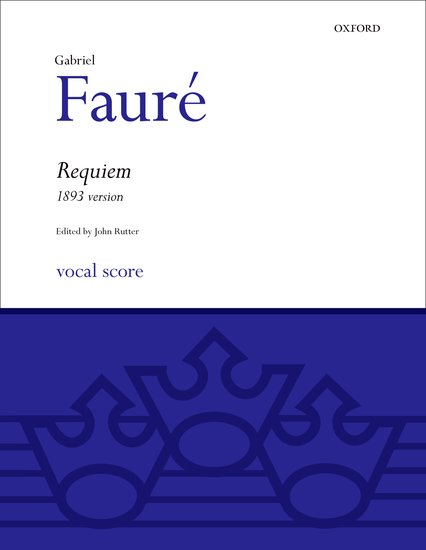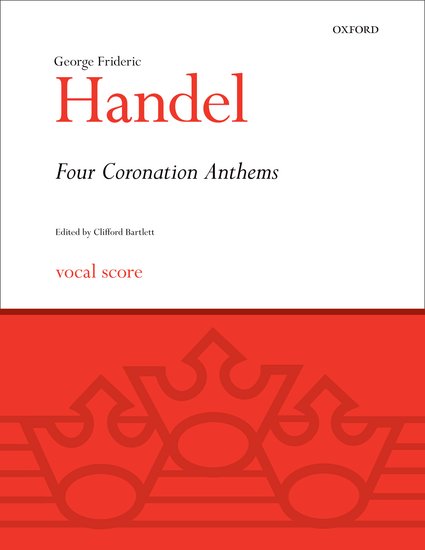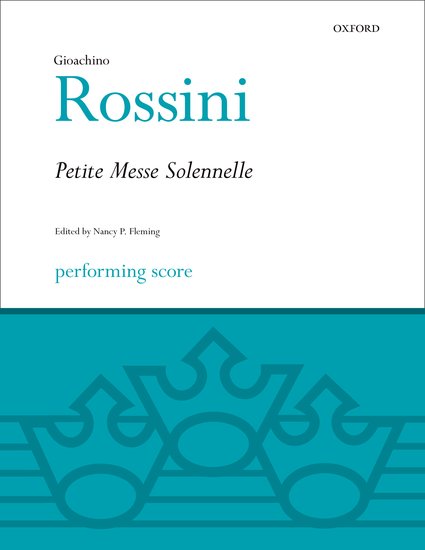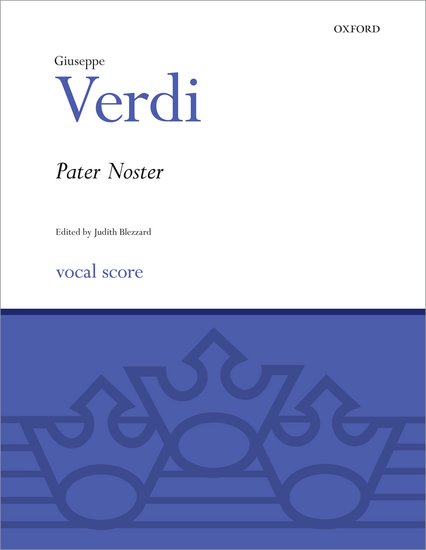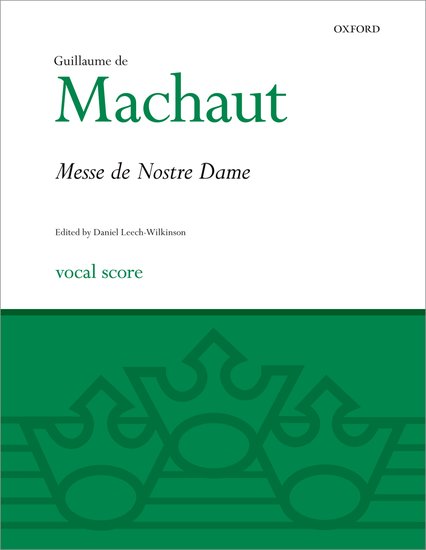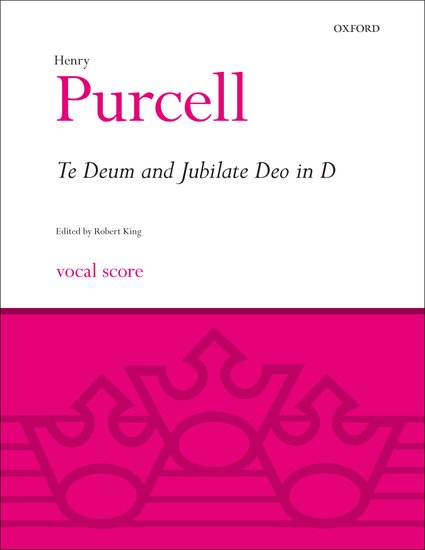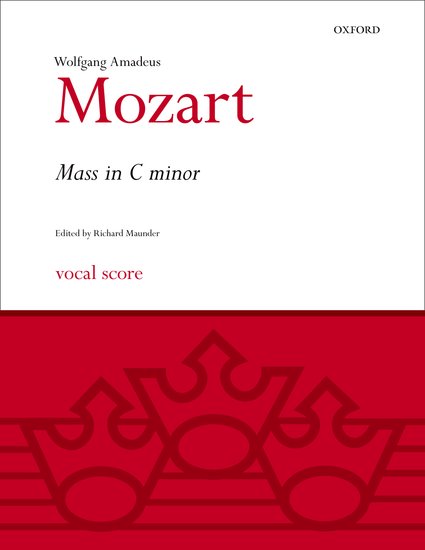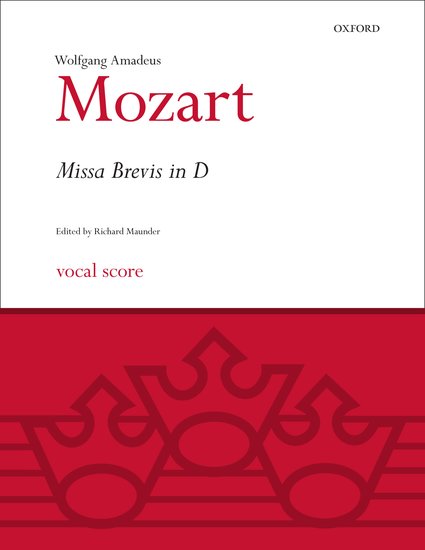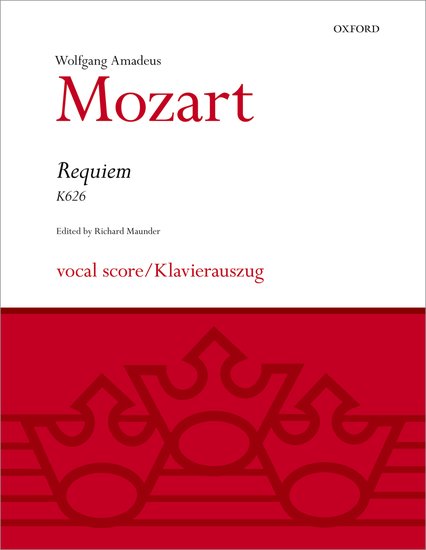In Celebration of the Human Voice - The Essential Musical Instrument
Home | Doo Wop | Barbershop | World | Contemporary | Christian | Vocal Jazz | Choral | Christmas | Instructional | Arrangements
Classical | Opera | Musicals | Personality | Young Singers | Disney | Videos | Songs | The Artists

Sheet Music Series
Classic Choral Works
Series Collections
Displaying 1-18 of 18 items.
Review: The memorable tunes and infectious optimism of Vivaldi's Gloria have made it one of the most popular choral works in the repertoire. For this edition, the distinguished Vivaldi scholar Paul Everett has returned to the autograph manuscript as the most authoritative source. Both full and vocal scores make clear distinction between original and editorial markings, and information on performance practice is relevant without being prescriptive. The vocal score includes an orchestral reduction for rehearsal purposes, and the full score is supplemented by a comprehensive critical commentary and continuo realization. It also includes a unique transcription of Ruggieri's 'Cum Sancto Spiritu', on which Vivaldi based his own setting.
Review: his edition is designed to meet the needs of both the scholar and the performer. It contains the complete music of all fourteen compositions as in Monteverdi's original print, plus the psalm 'Lauda Jerusalem' and the two Magnificats in a choice of pitches. Also provided are a continuo realization, notes on performance, Gregorian antiphons for the feasts of the Virgin, and examples of typical early seventeenth-century embellishments.
Review: Composed during the early 1700s, Emanuele d'Astorga's nine-movement Stabat Mater was to become one of the most frequently performed choral works of the eighteenth century. Tinged with melancholy, it features ornate solos, duets, and trios interspersed between beautiful imitative moments for full chorus. Robert King has consulted eighteenth-century sources for this edition, which includes an organ reduction for rehearsal purposes.
Review: Haydn's Missa brevis Sancti Joannis de Deo dates from c.1775 and was written for the Order of the Brothers of Mercy based in Eisenstadt. The mass is known for its distinctive 'Benedictus', which features elaborate soprano writing and an extensive obbligato organ part from which the work's alternative title, 'Little Organ Mass', derives. This edition includes the elongated 'Gloria' composed by Haydn's younger brother Michael, with Haydn's 31-bar original included as an Appendix.
Songlist: Kyrie, Gloria, Credo, Sanctus, Agnus Dei
Review: Haydn's Missa in Tempore Belli was composed in 1796 for SATB chorus and soloists with orchestra. It is one of the finest of the six Hermenegild masses that, together with The Creation and The Seasons, represent the crowning glory of Haydn's final creative period. Although the work was originally written for relatively modest orchestral forces, the wind scoring was expanded when it was performed to great acclaim in Vienna in late 1796. This critical edition by Dr David Russell Hulme is the first to include both the original and Viennese scorings, and the vocal score contains a specially prepared piano reduction that provides a full and practical representation of the instrumental textures and clearly identifies the additional Viennese material.
Review: This setting of the Te Deum, dedicated to the wife of Franz I of Austria, is a rare example of a work from Haydn's late period that doesn't feature soloists. The second of Haydn's Te Deum settings, the work was performed in September 1800 on the name-day of the wife of Haydn's patron, Prince Nicolaus Esterhazy II, and it features the C major tonality and extensive use of trumpets and drums that were often associated with festive ceremony.
Review: Next to Handel's Messiah, The Creation is perhaps the most frequently performed oratorio. This edition is the first to present the English text as Haydn intended, without the modifications of twentieth-century editions, and is the version used by Haydn in his many public renditions of the work using large forces. The keyboard reduction in this edition is by the Leipzig Cantor A. E. Müller, termed 'the best (and) most idiomatic' by Haydn himself. Full details of sources and editorial method, as well as a bibliography, can be found in the full score.
Review: Cantique de Jean Racine was written in 1865 during Faur'e's final year at the École Niedermeyer, winning him the first prize for composition, and this elegant work now holds a cherished place in the choral repertory for both sacred and secular occasions. Presented with an English singing translation in addition to the original French, John Rutter's edition includes an accompaniment for organ or piano, and the work may also be performed with the transcription for harp and strings (available separately), compatible with the instrumentation for the OUP edition of the Faur'e Requiem in its 1893 version.
Review: Cantique de Jean Racine was written in 1865 during Faur'e's final year at the École Niedermeyer, winning him the first prize for composition, and this elegant work now holds a cherished place in the choral repertory for both sacred and secular occasions. Presented with an English singing translation in addition to the original French, John Rutter's edition includes an accompaniment for organ or piano, and the work may also be performed with the transcription for harp and strings (available separately), compatible with the instrumentation for the OUP edition of the Faur'e Requiem in its 1893 version.
Review: This edition presents Fauré's masterpiece in a form which accords with his original intention that it should be a liturgical Requiem with accompaniment of organ and chamber ensemble. The 1893 version is an expansion of Fauré's original, prepared by the composer for a performance at the Church of the Madeleine in Paris and containing two additional movements, the Offertoire and the Libera me. In contrast to the fully orchestrated version that was published in 1900, this edition preserves the original chamber instrumentation, and it also contains a full English translation by John Rutter.
Songlist: Introit et Kyrie, Offertoire, Sanctus, Pie Jesu, Agnus Dei, Libera me, In paradisum
Review: These four splendid anthems were composed for the coronation of George II in October 1727 and have since retained a position at the heart of the English choral tradition. The popular anthem Zadok the priest has been performed at all subsequent coronations, and Handel's other contributions to the royal occasion - Let thy hand be strengthened, The King shall rejoice, and My heart is inditing - have the same majestic grandeur, with affecting contrasts between different sections of the sacred texts.
Songlist: Zadok the priest, Let thy hand be strengthened, The King shall rejoice, My heart is inditing
Review: This is the best known of Rossini's Péchés de vieillesse or 'Sins of Old Age'. Although a sacred work, the mass is characteristically lyrical and effervescent, and it affirms the composer's optimistic and deeply felt faith. The work was premiered in 1864. Although Rossini also produced an orchestrated version of the work in 1867, it is reported that he preferred the original scoring, and indeed much of the work's appeal lies in the idiomatic keyboard parts. This edition is based on the autograph manuscript of this original 1864 version, and every effort has been made to honour Rossini's intentions and produce a performing score that is authentic, accurate, and practical.
Review: Verdi's select output of choral music is little known, but contains much of the dramatic boldness and harmonic invention of his operatic choruses. The Pater Noster is an unusual and interesting work of moderate difficulty, ranging in mood from meditative, devotional stillness to dramatic contrasts of a more extrovert nature. This scholarly edition has been carefully prepared by Judith Blezzard, and includes a keyboard reduction for rehearsal purposes and an English singing translation by Professor Brian Trowell.
Review: Guillaume de Machaut was an important fourteenth-century French poet and composer. The four-part Messe de Nostre Dame is historically significant as the earliest example of a complete, stylistically coherent, through-composed setting of the Ordinary of the Mass by a single composer. The setting has close connections with Reims Cathedral and is thought to have been composed in the early 1360s, becoming a memorial mass on the death of Machaut's brother in 1372. It would most likely have been performed by unaccompanied solo male voices, and the suggested scoring for modern performance is two altos and two tenors or two tenors and two baritones. The five movements of the Mass are followed by a short dismissal, Ite missa est.
Review: Written for St Cecilia's Day 1694, Purcell's popular Te Deum and Jubilate in D was the first work of its kind to be scored for orchestra, and it became the model for future settings of the text by Blow, Croft, and Handel. This new edition by Robert King has been prepared using the earliest available source material, combining up-to-date scholarship with a clear and practical layout. The edition includes an organ reduction for rehearsal purposes.
Review: Mozart's mass was first performed in Salzburg in October 1783, with Mozart's wife, Constanze, singing the soprano solos. For this edition, Richard Maunder has completed the orchestration of the two Credo movements and reconstructed the Sanctus and 'Osanna', taking full account of Mozart's division of the voices into two choirs. The vocal score includes an orchestral reduction for rehearsal purposes, and details of original sources and editorial practice may be found in the full score.
Review: Mozart's Missa Brevis was written in 1774 and is divided into six short movements, corresponding to the standard sections of the Mass. Richard Maunder has provided appropriate plainsong intonations for the Gloria and Credo, as well as a playable keyboard reduction, and the work's scoring-for SATB soloists, SATB chorus, and chamber ensemble-and overall compactness make it ideal for performance in a liturgical context as well as in the concert hall.
Songlist: Kyrie, Gloria, Credo, Sanctus, Agnus Dei
Review: This edition of Mozart's final work, the Requiem, starts afresh from Mozart's incomplete score, omitting the continuations and orchestrations by Joseph Eybler and Franz Xaver Süssmayr, who were engaged by Mozart's widow, Constanze, to complete the setting. The orchestration has been reworked throughout by Richard Maunder, and the 'Lacrymosa' has been given a new continuation. Süssmayr's Sanctus and Benedictus movements have been included as an appendix. The vocal score includes an orchestral reduction for rehearsal purposes, and full details of editorial emendations and additions can be found in the full score.
![]() Vocal Harmony Arrangements - Home
Vocal Harmony Arrangements - Home
Christian | Gospel | Standards | Musicals | Specialty | World | Barbershop | Contemporary | Vocal Jazz | Choral | Christmas
Mixed Voices | Female | Male | 8 Parts | 6 Parts | 5 Parts | 3 Parts | 2 Parts | Medleys | Solo | Folio Series | New Releases
Select a Category |
Want to Sing? - Find a Chorus Near You
List of Choruses by State | List of Choruses by City

